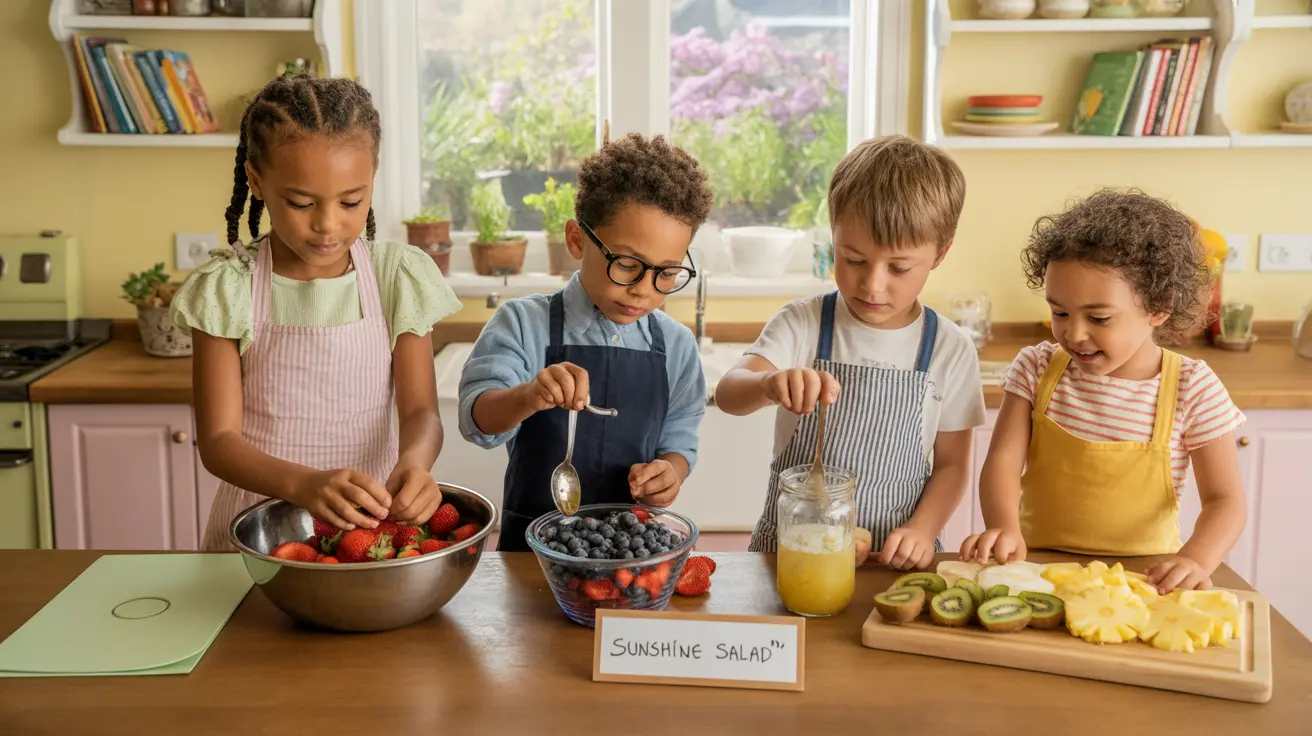Getting kids involved in the kitchen is a fantastic way to develop their independence, teach valuable life skills, and encourage healthy eating habits. When children participate in meal preparation, they're more likely to try new foods and develop a positive relationship with nutrition. This guide explores age-appropriate recipes and cooking activities that empower children to become confident in the kitchen.
The Benefits of Cooking with Kids
Teaching children to cook goes beyond just preparing meals. It helps develop math skills through measuring ingredients, enhances fine motor skills through tasks like mixing and pouring, and builds confidence through accomplishment. When kids help create meals, they gain a better understanding of nutrition and are more likely to make healthier food choices.
Age-Appropriate Kitchen Tasks
Ages 3-5
Young children can start with simple, supervised tasks such as:
- Washing fruits and vegetables
- Mixing dry ingredients
- Adding pre-measured ingredients
- Helping to set the table
- Using cookie cutters
Ages 6-8
School-age children can take on more responsibility with tasks like:
- Measuring ingredients
- Cracking eggs
- Using a butter knife for soft foods
- Reading simple recipes
- Operating a hand mixer with supervision
Ages 9-12
Older children can handle more complex tasks including:
- Following recipes independently
- Using small appliances
- Basic knife skills with supervision
- Operating the microwave
- Learning basic food safety
Simple and Healthy Recipes for Kids to Make
Breakfast Options
Start the day with these kid-friendly recipes:
- Yogurt parfaits with fresh fruit and granola
- Overnight oats with favorite toppings
- Smoothie bowls with creative decorations
- Whole grain toast with healthy toppings
Lunch and Snack Ideas
Encourage independence with these easy-to-prepare options:
- Build-your-own sandwich stations
- Veggie and hummus wraps
- Trail mix with nuts and dried fruits
- Apple "cookies" with nut butter and toppings
Simple Dinner Recipes
Get kids involved in family meals with these recipes:
- Personal mini pizzas on whole grain pitas
- Build-your-own taco bars
- Sheet pan chicken and vegetables
- Homemade rice bowls with colorful toppings
Kitchen Safety and Hygiene
Teaching proper kitchen safety is essential when cooking with kids. Key lessons should include:
- Proper hand washing techniques
- Safe use of kitchen tools
- Understanding hot and cold surfaces
- Food storage safety
- Clean-as-you-go practices
Making Cooking Fun and Educational
Transform cooking into an engaging learning experience by:
- Creating themed meal nights
- Growing herbs or vegetables to use in recipes
- Learning about ingredients from different cultures
- Documenting kitchen adventures with photos
- Celebrating cooking achievements
Frequently Asked Questions
What are some simple and healthy recipes that children can make on their own?
Children can make simple recipes like yogurt parfaits, smoothies, sandwiches, and supervised microwave meals. Older kids can prepare more complex dishes like homemade pizza, pasta dishes, and simple baked goods with proper guidance.
How does cooking with kids help encourage healthier eating habits?
When children participate in meal preparation, they develop a better understanding of ingredients and nutrition. They're more likely to try new foods they've helped prepare and feel more connected to their food choices, leading to healthier eating habits.
What are the best kitchen tasks for children of different ages to improve their motor skills?
Young children can start with mixing and pouring, while school-age kids can measure ingredients and use simple tools. Older children can learn knife skills and operate small appliances, all of which help develop fine motor skills at appropriate developmental stages.
Can cooking with kids help them develop independence and life skills?
Yes, cooking teaches valuable life skills including following instructions, time management, organization, and kitchen safety. These skills build confidence and independence that extend beyond the kitchen.
What are some nutritious and fun food options for kids with dietary restrictions or allergies?
Children with dietary restrictions can enjoy modified versions of popular recipes using appropriate substitutions. Examples include gluten-free baking, dairy-free smoothies, nut-free energy balls, and vegetarian protein options that maintain both nutrition and enjoyment.




